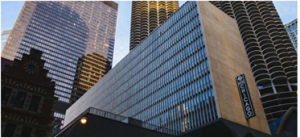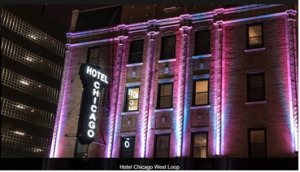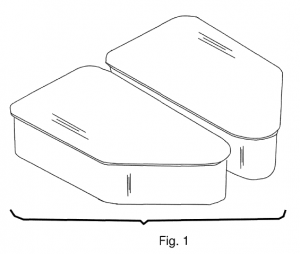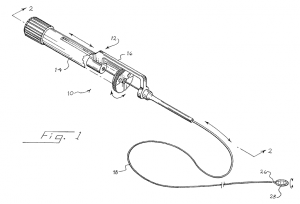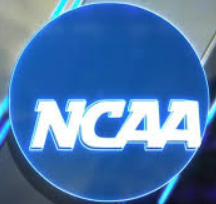Washington, D.C. – In the matter of Kirtsaeng v. John Wiley & Sons, Inc., the U.S. Supreme Court unanimously held that, among the factors considered in awarding attorneys’ fees under the Copyright Act, courts must give substantial weight to the objective reasonableness of the losing party’s position.
The Court was not persuaded that special consideration should be given to whether the lawsuit resolved important and close legal issues, expressing doubt that fee shifting will encourage parties to litigate such issues. While the Second Circuit test is close to what the Supreme Court prescribes, Justice Kagan wrote, in the Second Circuit, “substantial weight” has become “dispositive weight.” However, the Court also stressed that all circumstances of the case must be considered in light of the goals of the Copyright Act, acknowledging that fees may be warranted despite the objective reasonableness of the losing party’s position.
The decision is consistent with the position advocated in an AIPLA amicus brief filed in this case.
Background
Supap Kirtsaeng, born in Thailand, attended college in the United States. While he was studying in the United States, Kirtsaeng asked his friends and family in Thailand to buy and mail to him copies of foreign edition English language textbooks at Thai book shops, where they are sold at low prices. When publisher John Wiley & Sons (“Wiley”) learned about Kirtsaeng’s sales in the United States at low prices, it sued Kirtsaeng for copyright infringement.
In 2013, the Supreme Court ruled in favor of Kirtsaeng, concluding that Wiley’s sales of the books in Thailand exhausted its copyright interest in the U.S. sales under the first sale doctrine. On remand, Kirtsaeng’s motion for attorneys’ fees was denied. In affirming the decision, the Second Circuit relied on the objective reasonableness of Wiley’s position that the first sale doctrine did not apply to extra-territorial transactions.
Kirtsaeng asked the Supreme Court to review the attorney fee decision.
Competing Factors
Justice Kagan noted that Section 505 of the Copyright Act states that district courts “may” award attorneys’ fees to the prevailing party in copyright litigation, but said that the statute provides no standards for deciding when such awards are appropriate. Guidance for fee awards can be found in the Court’s decision in Fogerty v. Fantasy, Inc, she added, which includes a non-exclusive list of factors that further the goals of the Copyright Act.
In this litigation, each party asserted a factor believed to merit substantial weight: for Kirtsaeng, it is whether the lawsuit resolved an important and close legal issue; for Wiley, it is whether the position unsuccessfully argued by the losing party was objectively reasonable.
The Court concluded that the objective reasonableness of the losing party’s position is more important than the lawsuit’s role in settling a significant and uncertain legal issue. According to Justice Kagan, Wiley’s proposal “both encourages parties with strong legal positions to stand on their rights and deters those with weak ones from proceeding with litigation.” The copyright holder with no reasonable infringement claim has good reason not to sue in the first instance, she explained, and the infringer with no reasonable defense has every reason to give in quickly, before each side’s litigation costs mount.
By contrast, the Court continued, Kirtsaeng’s proposal would not produce any sure benefits. While litigation of close cases can advance the public interest by helping to clearly demarcate the boundaries of copyright law, it is not clear that fee shifting will necessarily, or even usually, encourage parties to litigate those cases to judgment, according to the Court. Justice Kagan explained as follows:
Fee awards are a double-edged sword: They increase the reward for a victory–but also enhance the penalty for a defeat. And the hallmark of hard cases is that no party can be confident if he will win or lose. That means Kirtsaeng’s approach could just as easily discourage as encourage parties to pursue the kinds of suits that “meaningfully clarif[y]” copyright law. … It would (by definition) raise the stakes of such suits; but whether those higher stakes would provide an incentive–or instead a disincentive–to litigate hinges on a party’s attitude toward risk. Is the person risk-preferring or risk-averse–a high-roller or a penny-ante type? Only the former would litigate more in Kirtsaeng’s world. … And Kirtsaeng offers no reason to think that serious gamblers predominate. … So the value of his standard, unlike Wiley’s, is entirely speculative.
What is more, Wiley’s approach is more administrable than Kirtsaeng’s. A district court that has ruled on the merits of a copyright case can easily assess whether the losing party advanced an unreasonable claim or defense. That is closely related to what the court has already done: In deciding any case, a judge cannot help but consider the strength and weakness of each side’s arguments. By contrast, a judge may not know at the conclusion of a suit whether a newly decided issue will have, as Kirtsaeng thinks critical, broad legal significance. The precedent-setting, law-clarifying value of a decision may become apparent only in retrospect–sometimes, not until many years later. And so too a decision’s practical impact (to the extent Kirtsaeng would have courts separately consider that factor). District courts are not accustomed to evaluating in real time either the jurisprudential or the on-the-ground import of their rulings. Exactly how they would do so is uncertain (Kirtsaeng points to no other context in which courts undertake such an analysis), but we fear that the inquiry would implicate our oft-stated concern that an application for attorney’s fees “should not result in a second major litigation.”
Substantial, But Not Dispositive, Factor
All of that said, objective reasonableness can be only an important factor in assessing fee applications–not the controlling one, Justice Kagan cautioned. “Although objective reasonableness carries significant weight, courts must view all the circumstances of a case on their own terms, in light of the Copyright Act’s essential goals,” she wrote.
The Court particularly acknowledged the serious concerns raised over the Second Circuit approach. While it frames the inquiry in a similar way, the Second Circuit language at times suggests that a presumption against a fee award arises from a finding of reasonableness. That perspective goes too far in limiting the district court’s analysis, according to the Court, observing that district courts in the Second Circuit appear to have turned “substantial” weight into something closer to “dispositive” weight. In particular, the Court acknowledged that hardly any of those decisions have granted fees when the losing party raised a reasonable argument (and none have denied fees when the losing party failed to do so).
Without suggesting that a different conclusion be reached, the Court vacated and remanded the case for further consideration in line with this analysis.
Continue reading
 that Defendant, Toolfarm.com, Inc. (“Toolfarm”) of South Bend, Indiana, infringed his rights in United States Copyright Registration No. VA 2-106-766. Verch is seeking actual damages, profits, income, receipts, or other benefits received by Toolfarm, costs, expenses, attorneys’ fees, and pre-judgment interest.
that Defendant, Toolfarm.com, Inc. (“Toolfarm”) of South Bend, Indiana, infringed his rights in United States Copyright Registration No. VA 2-106-766. Verch is seeking actual damages, profits, income, receipts, or other benefits received by Toolfarm, costs, expenses, attorneys’ fees, and pre-judgment interest. Indiana Intellectual Property Law News
Indiana Intellectual Property Law News


